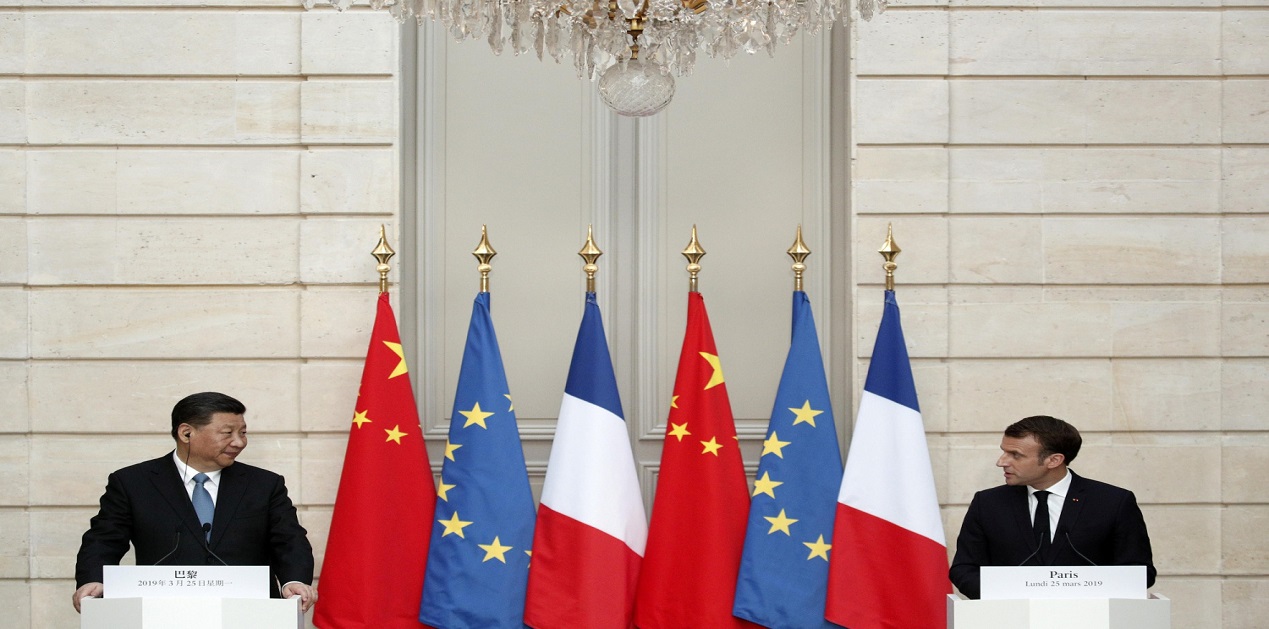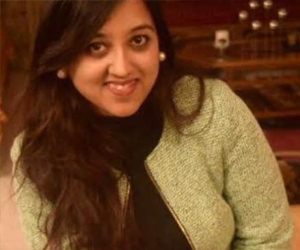This year, 2024, marks six decades of the diplomatic relationship between China and France. Chinese President Xi Jingping announced breaking new grounds to further strengthen their bilateral ties. He stated that this was an opportunity to uphold fundamental principles, break new ground, build on past achievements, open up a new future, and make China-France’s comprehensive strategic partnership more solid and dynamic.[1] This would include stepping up French imports in China while China expects a just business environment for Chinese firms in France. There has been a Chinese acceptance of the idea of French President Emmanuel Macron establishing a third bloc in the contemporary global rivalry between the major powers, a balancing force
between the US and China. The major areas of cooperation between the Sino-French in the contemporary world order have been in the fields of nuclear energy, aeronautics, and the global challenge of climate change.
Background
Historically, the communique of January 27th, 1964 established the formal diplomatic relationship between China and France. Chairman
Mao Zedong and General Charles de Gaulle opened the door for exchanges and cooperation. This was taking shape in the background of heightened tensions of the Cold War era. In addition to this, the American President, JF Kennedy, was assassinated just a few years back, destabilizing the American political setup. This was also the time when America was just out of the Cuban missile crisis. France was the first Western nation to normalize ties with China. This move led to China’s rise on the global stage. The situation for China was dismal in 1964, standing alone and relatively backward. On the contrary, France was highly developed and had a unique culture of strategic independence regardless of the international scenario at that time. Two civilizations came together, recognizing each other and normalizing ties. In the time span of sixty years passed, France still remains in its glory while China has transformed gigantically to engage in great power politics. France believed that China, being the most populous nation, would potentially carry huge weight in global politics in the future.[2]
The Sino-French ties in the new world order go beyond economic and policy decision-making. Despite disparities in social systems, historical backgrounds, and cultures, China and France have consistently shown mutual respect, engaged in reciprocal learning, and fostered cooperation founded on the principle of finding common ground while setting aside differences. The ongoing Russia-Ukraine conflict, the Israel-Hamas conflict and the instability in the Indo-Pacific region has not impacted the pragmatism that Paris applies to its foreign policy approach. France has been the torchbearer of strategic autonomy and independent decision-making. It is of the view that the European Union should not drag itself into a crisis that is not of its own making. The French have a strong and stable partnership with the USA. However, the foreign policy neither succumbs to the pressure tactics of the Western allies nor blindly follows the West.
Bilateral Ties
The bilateral ties start from pioneering the inaugural civil air route between China and the West to embarking on joint ventures to explore third-party markets. These groundbreaking initiatives exemplify the enduring "China-France spirit" and its transformative impact on both countries. While China is the largest trading partner for France in Asia and the seventh largest globally with an estimation of $180 billion in 2022; France is the third largest trade partner for China and the third-largest source of investment in real terms in the EU. The bilateral trade is $79 billion as of 2023. Recently, President Macron's visited China in 2023.
In terms of soft power diplomacy, there are 30,000 Chinese students in France, while French students have started learning Mandarin in schools. The estimation for tourism, in terms of Chinese people visiting France, was more than two million during pre-covid times. The year 2024 has been officially dedicated as the year for French-Chinese Culture/ Language Exchange and Tourism, with cultural performances taking place in the well-known Versailles Palace. Cultural centres have been established in both countries. France is looking for mutually beneficial cooperation with China, while for China, the partnership helps to expedite its relationship with the European Union (EU).[3]
The exchanges between France and China doesn’t only include high grade, high precision and cutting-edge technology but are also linked to commodities of people’s daily lives. It includes exchanges from planes, satellites, establishment of nuclear power stations to wines, cheese, and cosmetics. French-made Airbus in-service planes in China had risen to over 2,100 aircraft[4], representing more than 50 percent of the market by the end of the first quarter of 2023, while French consumers increasingly favour Chinese mobile phones, electric vehicles, and other products. The bilateral level exchanges advanced rapidly, especially since 2023, leading to sound growth and fruitful results. People-to-people exchanges have also reached a new high as China announced on Dec. 1 last year that it would implement a 15-day visa-free policy for French short-term visitors to China, and France later also announced that Chinese holders of master's degrees who have studied in France could receive five-year visas. However, the geostrategic gain for both countries requires engagement beyond trade, tourism, and retail.[5]
The India Factor
With the recent visit of French President Macron to India as the Chief Guest for the Republic Day, 2024, the relations have further deepened. The regional contestation between India and China in South Asia, necessitates France to balance its relation with both the countries. Earlier, in September, 2020, France, India and Australia launched a trilateral dialogue with the aim of boosting cooperation to ensure a “peaceful, secure, prosperous and rules-based Indo-Pacific.” The joint statement signed states that India and France have agreed to work together on the joint production of defence equipment including helicopters and submarines for the Indian armed forces and production for friendly countries. They have expanded bilateral ties in defence production, nuclear energy, space research and the use of artificial intelligence for public services like climate change, health and agriculture. France is the second largest arms supplier to India, in terms of the fighter jets for four decades.
There is a setting up of maintenance, repair and overhaul services by France's Safran for leading-edge aviation propulsion (LEAP) engines in India and adding such services for Rafale engines, and a helicopter partnership. The bilateral summit during Macron's 40-hour visit, was the fifth Macron-Modi meeting since May, 2023. This shows the heightened significance of the bilateral ties.[6] India's Tata Group and France's Airbus have signed an agreement to manufacture civilian helicopters together. In addition, French jet engine maker CFM International also announced an agreement with India’s Akasa Air to buy more than 300 of its LEAP-1B engines to power 150 Boeing 737 MAX aircraft. India and France agreed to intensify cooperation in the southwest Indian Ocean, building on joint surveillance missions carried out from the French island territory of La Reunion in 2020 and 2022. Macron also said France would create conditions to attract up to 30,000 Indian students a year for higher education.[7]
India has been effectively using its public diplomacy with an intermix of hard and soft tools to ensure that China doesn’t get a free run in South Asia with its big-ticket projects like the Belt and Road Initiative. The French also have interest in Indo-Pacific as they have island territories in the region and have cooperative arrangements with India. However, engaging China seems to be the most pragmatic approach for Paris in the new emerging world order.
Concerns
There have been some sticking points in the Sino-French partnership. The first is the skewed trade balance between the two countries with an estimation of four billion euros against France. The second is the over reliance on China over the green energy equipment. The third is the issue over investments in Africa, where the contention is about China taking over France in its developmental diplomacy. China has been a competitor in Africa, but in other parts of the world, the French see them as a peacemaker. For instance, the French diplomat stated that in the Middle East, the Chinese play the role of peacekeeper.[8] However, in the Indo-Pacific and the Asian subcontinent, the Sino-French competition is overtly visible. The French are the established host power in Polynesia and New Caledonia, where China is a competitor.
Conclusion
As the world is undergoing profound historical changes, the idea of disengagement and decoupling with China does not appear to be a viable option for the world community. The French believe in engagement with China based on hard negotiating skills and effective diplomacy. There is a need for interdependence based on mutually beneficial cooperation built on the foundation of mutual trust. India has its own security concerns with the Chinese presence in the South Asian region. The French have however, chosen to deal with China bilaterally based on autonomous decision-making.
References
[1]China’s Xi Jinping’s “Break New Ground” Offer To France, Days After Macron’s India Visit. (n.d.). NDTV.Com. Retrieved January 31, 2024, from https://www.ndtv.com/world-news/xi-jinpings-break-new-ground-message-to-france-days-after-emmanuel-macrons-india-visit-4950225
[2]The Heat: China-France Relations. (2024, January 30). CGTN America. https://america.cgtn.com/2024/01/29/the-heat-china-france-relations
[3]60 years on, China-France relations continue to benefit world peace, stability | english.scio.gov.cn. (n.d.). Retrieved January 31, 2024, from http://english.scio.gov.cn/in-depth/2024-01/29/content_116971009.htm
[4]Ibid
[5]China-France Relations Maintain Sound Growth with Fruitful Results: Spokesman—YouTube. (n.d.). Retrieved January 31, 2024, from https://www.youtube.com/watch?v=K9llHLXRBLU
[6]India—France Joint Statement on the State Visit of H.E. Mr. Emmanuel Macron, President of French Republic, to India (25—26 January 2024). (n.d.). Retrieved February 2, 2024, from https://www.mea.gov.in/bilateral-documents.htm?dtl/37534/India__France_Joint_Statement_on_the_State_Visit_of_HE_Mr_Emmanuel_Macron_President_of_French_Republic_to_India_25__26_January_2024
[7]Kumar, M. (2024, January 27). India, France agree on joint defence production. Reuters. https://www.reuters.com/world/india-france-agree-joint-defence-production-statement-2024-01-27/
[8]Hille, K. (2023, March 14). China casts itself as Middle East peacemaker with global ambition. https://www.ft.com/content/9d832121-022b-4b56-bf84-95a237e698e8
(The paper is the author’s individual scholastic articulation. The author certifies that the article/paper is original in content, unpublished and it has not been submitted for publication/web upload elsewhere, and that the facts and figures quoted are duly referenced, as needed, and are believed to be correct). (The paper does not necessarily represent the organisational stance... More >>
Image Source: https://datacdn.btimesonline.com/data/images/full/112292/7th-china-france-high-level-economic-and-financial-dialogue.jpg










Post new comment